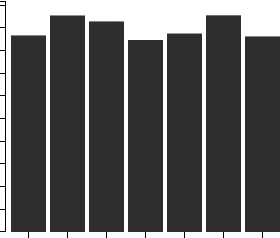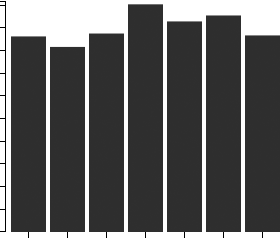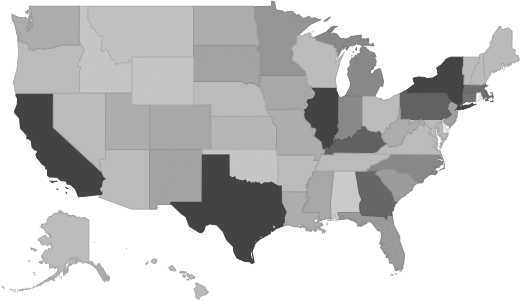Cut and Sew Apparel Manufacturing - Market Size, Financial Statistics, Industry Trends
Industry Overview
This industry group comprises establishments primarily engaged in manufacturing cut and sew apparel from woven fabric or purchased knit fabric. Included in this industry group is a diverse range of establishments manufacturing full lines of ready-to-wear apparel and custom apparel: apparel contractors, performing cutting or sewing operations on materials owned by others; jobbers, performing entrepreneurial functions involved in apparel manufacturing; and tailors, manufacturing custom garments for individual clients. Establishments weaving or knitting fabric, without manufacturing apparel, are classified in Subsector 313, Textile Mills.Source: U.S. Census Bureau
Cut and Sew Apparel Manufacturing Market Size
This report includes historical and forecasted market sizes and industry trends for Cut and Sew Apparel Manufacturing. It reveals overall market dynamics from 2021 through the present, and predicts industry growth or shrinkage through 2031. Revenue data include both public and private companies in the Cut and Sew Apparel Manufacturing industry.| Historical | Forecasted | ||||||||||
|---|---|---|---|---|---|---|---|---|---|---|---|
| 2021 | 2022 | 2023 | 2024 | 2025 | 2026 | 2027 | 2028 | 2029 | 2030 | 2031 | |
| Market Size (Total Revenue) | Included in Report |
||||||||||
| % Growth Rate | |||||||||||
| Number of Companies | |||||||||||
| Total Employees | |||||||||||
| Average Revenue per Company | |||||||||||
| Average Employees per Company | |||||||||||
Industry Revenue ($ Billions)

Industry Forecast ($ Billions)

Pell Research's advanced econometric models forecast five years of industry growth based on short- and long-term trend analysis. Market size statistics include revenue generated from all products and services sold within the Cut and Sew Apparel Manufacturing industry.
Geographic Breakdown by U.S. State
Cut and Sew Apparel Manufacturing market share by state pinpoints local opportunities based on regional revenue statistics. Growth rate for each state is affected by regional economic conditions. Data by state can be used to locate profitable and nonprofitable locations for Cut and Sew Apparel Manufacturing companies in the United States.Industry Revenue by State

Distribution by Company Size
| Company Size | All Industries | Cut and Sew Apparel Manufacturing |
|---|---|---|
| Small Business (< 5 Employees) | Included |
|
| Small Business (5 - 20) | ||
| Midsized Business (20 - 100) | ||
| Large Business (100 - 500) | ||
| Enterprise (> 500) | ||
Industry Income Statement (Average Financial Metrics)
Financial statement analysis determines averages for the following industry forces:- Cost of goods sold
- Compensation of officers
- Salaries and wages
- Employee benefit programs
- Rent paid
- Advertising and marketing budgets
The report includes a traditional income statement from an "average" Cut and Sew Apparel Manufacturing company (both public and private companies are included).
| Industry Average | Percent of Sales | |
|---|---|---|
| Total Revenue | Included |
|
| Operating Revenue | ||
| Cost of Goods Sold (COGS) | ||
| Gross Profit | ||
| Operating Expenses | ||
| Operating Income | ||
| Non-Operating Income | ||
| Earnings Before Interest and Taxes (EBIT) | ||
| Interest Expense | ||
| Earnings Before Taxes | ||
| Income Tax | ||
| Net Profit | ||
Average Income Statement

Cost of Goods Sold
Salaries, Wages, and Benefits
Rent
Advertising
Depreciation and Amortization
Officer Compensation
Net Income
Financial Ratio Analysis
Financial ratios allow a company's performance to be compared against that of its peers.| Financial Ratio | Industry Average |
|---|---|
| Profitability Ratios | Included |
| Profit Margin | |
| ROE | |
| ROA | |
| Liquidity Ratios | |
| Current Ratio | |
| Quick Ratio | |
| Activity Ratios | |
| Average Collection Period | |
| Asset Turnover Ratio | |
| Receivables Turnover Ratio | |
| Inventory Conversion Ratio |
Compensation and Salary Surveys
Salary information for employees working in the Cut and Sew Apparel Manufacturing industry.| Title | Percent of Workforce | Bottom Quartile | Average (Median) Salary | Upper Quartile |
|---|---|---|---|---|
| Management Occupations | 5% |
Included |
||
| Chief Executives | 0% | |||
| General and Operations Managers | 2% | |||
| Office and Administrative Support Occupations | 12% | |||
| Production Occupations | 66% | |||
| Textile, Apparel, and Furnishings Workers | 54% | |||
| Sewing Machine Operators | 44% | |||
| Sewing Machine Operators | 44% | |||
| Other Production Occupations | 8% | |||
Government Contracts
The federal government spent an annual total of $219,859,226 on the Cut and Sew Apparel Manufacturing industry. It has awarded 2,486 contracts to 426 companies, with an average value of $516,101 per company.Top Companies in Cut and Sew Apparel Manufacturing and Adjacent Industries
| Company | Address | Revenue ($ Millions) |
|---|---|---|
Included |
||
